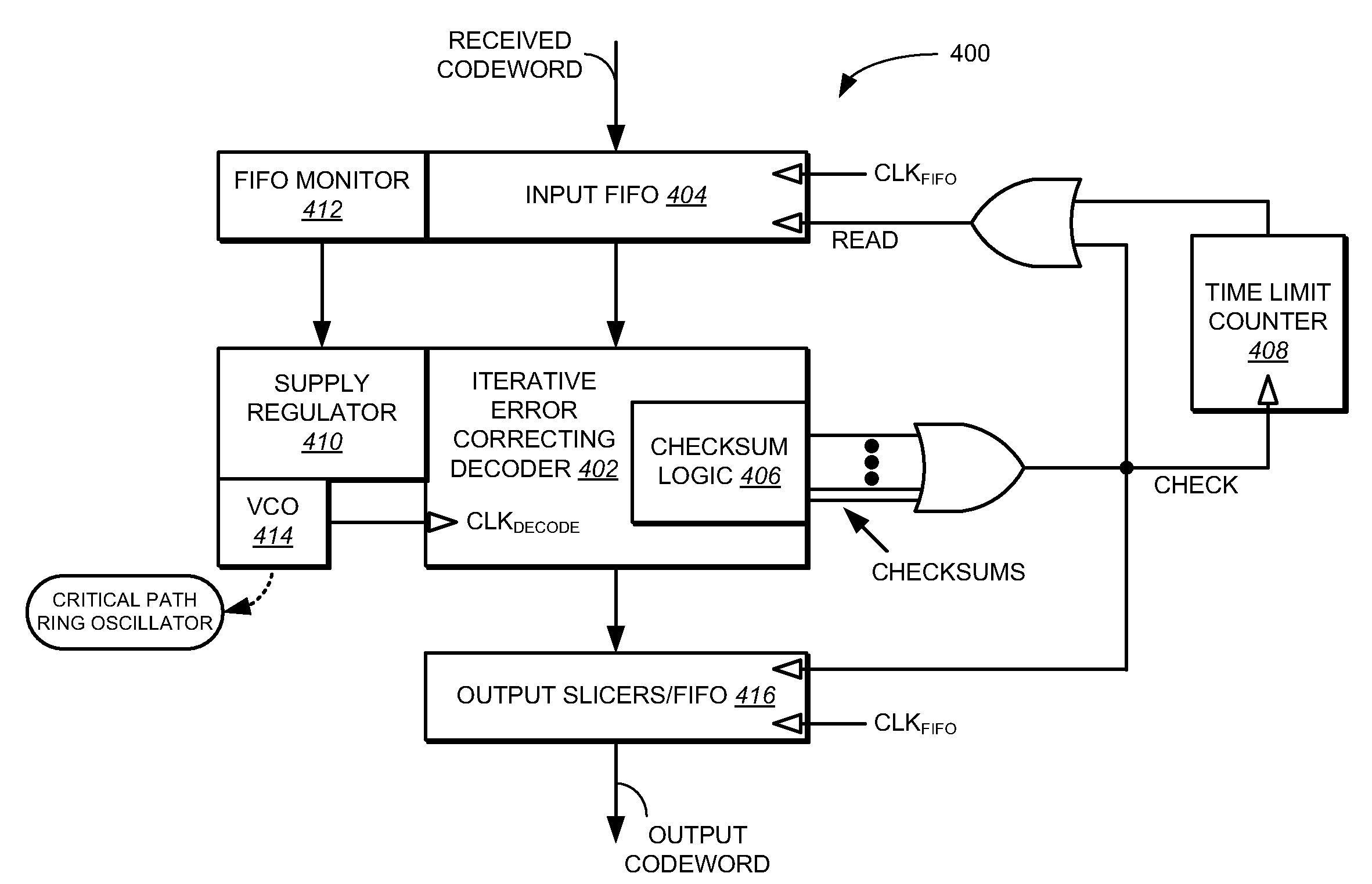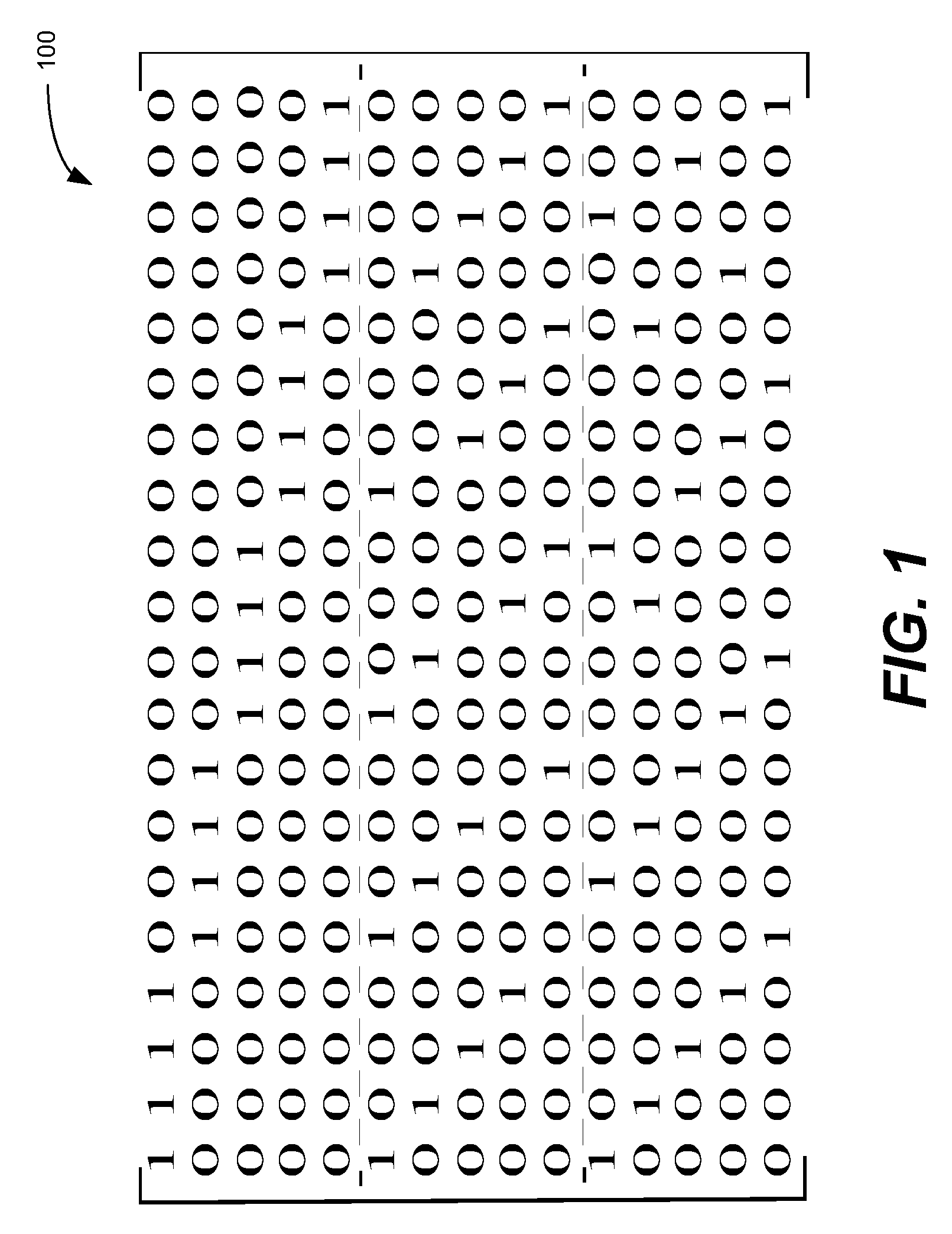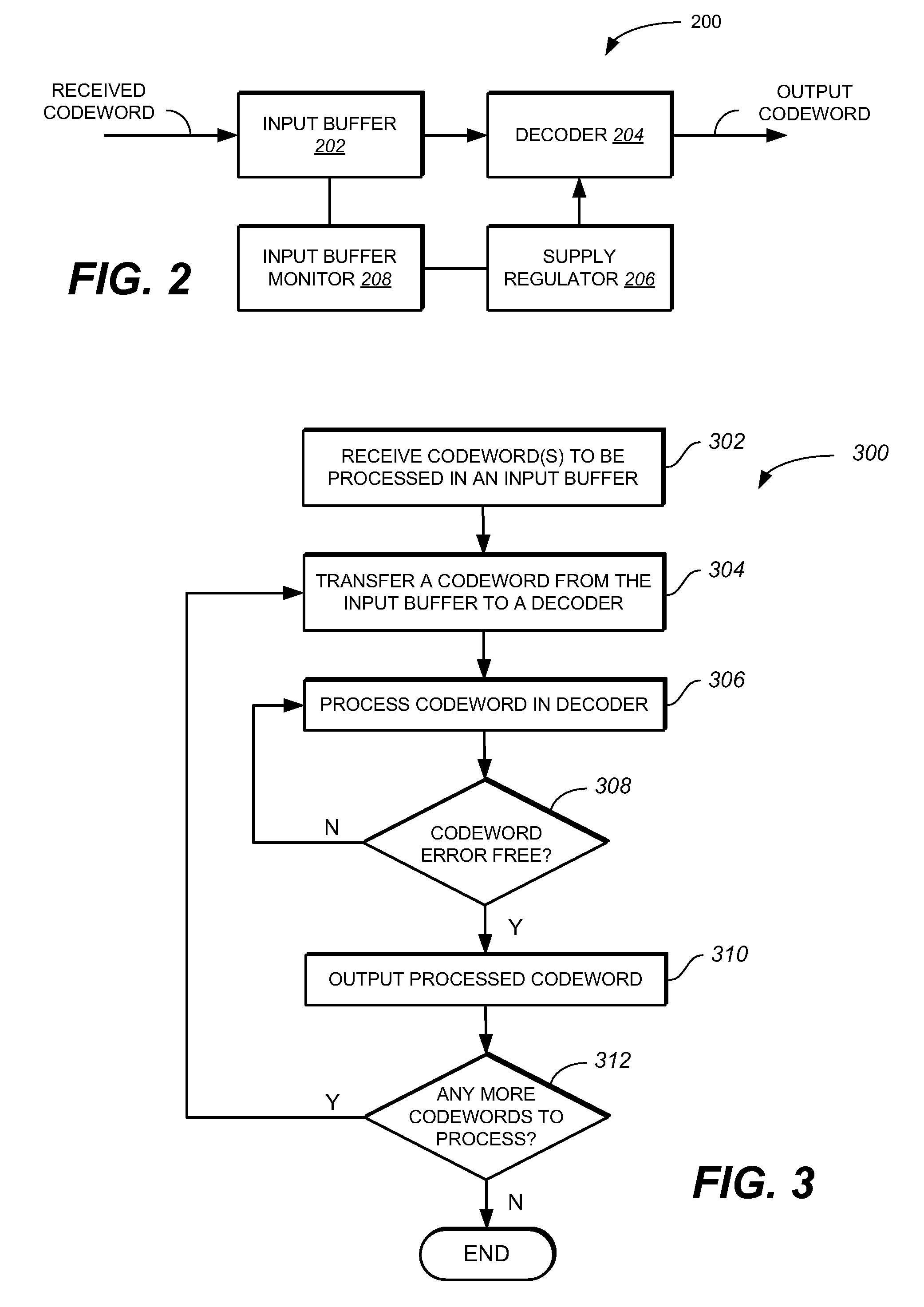Low power iterative decoder using input data pipelining and voltage scaling
a low-power iterative and decoder technology, applied in the field of data communication, can solve problems such as data communication error correction, and achieve the effect of increasing the effective decoding time of the decoder
- Summary
- Abstract
- Description
- Claims
- Application Information
AI Technical Summary
Benefits of technology
Problems solved by technology
Method used
Image
Examples
Embodiment Construction
[0015]The present invention relates generally to data communications, and more particularly to error correction in data communications. The present invention is not intended to be limited to the implementations shown but is to be accorded the widest scope consistent with the principles and features described herein.
[0016]An important observation with regards to iterative decoding is that not all received codewords require the same number of iterations to become error free. The reason is due to the random nature of channel noise, not all received codewords have the same bit probabilities of one or zero—i.e., there is not the same number of errors per codeword. Conventionally, the number of iterations that an iterative decoder must perform is set (i.e., fixed) such that the worst case codeword received (given a target BER) can be fully corrected (or be error free). However, the majority of the received codewords typically require fewer iterations while a worst case codeword is rarely ...
PUM
 Login to View More
Login to View More Abstract
Description
Claims
Application Information
 Login to View More
Login to View More - R&D
- Intellectual Property
- Life Sciences
- Materials
- Tech Scout
- Unparalleled Data Quality
- Higher Quality Content
- 60% Fewer Hallucinations
Browse by: Latest US Patents, China's latest patents, Technical Efficacy Thesaurus, Application Domain, Technology Topic, Popular Technical Reports.
© 2025 PatSnap. All rights reserved.Legal|Privacy policy|Modern Slavery Act Transparency Statement|Sitemap|About US| Contact US: help@patsnap.com



